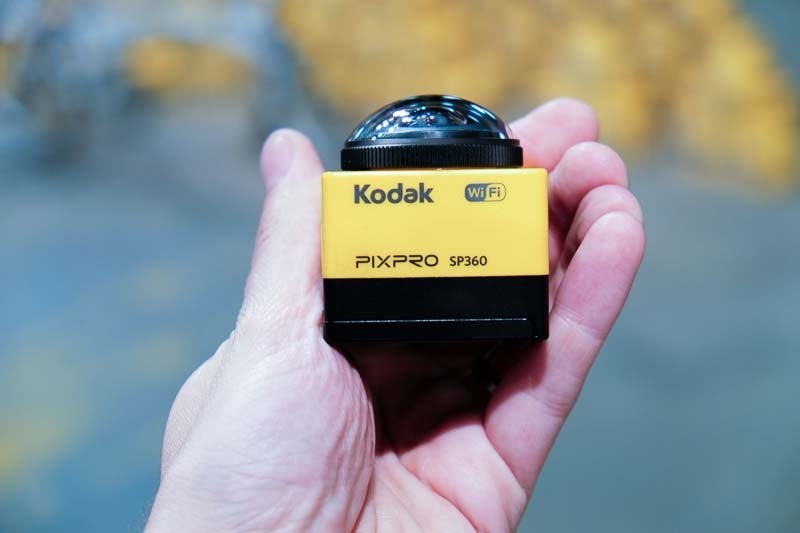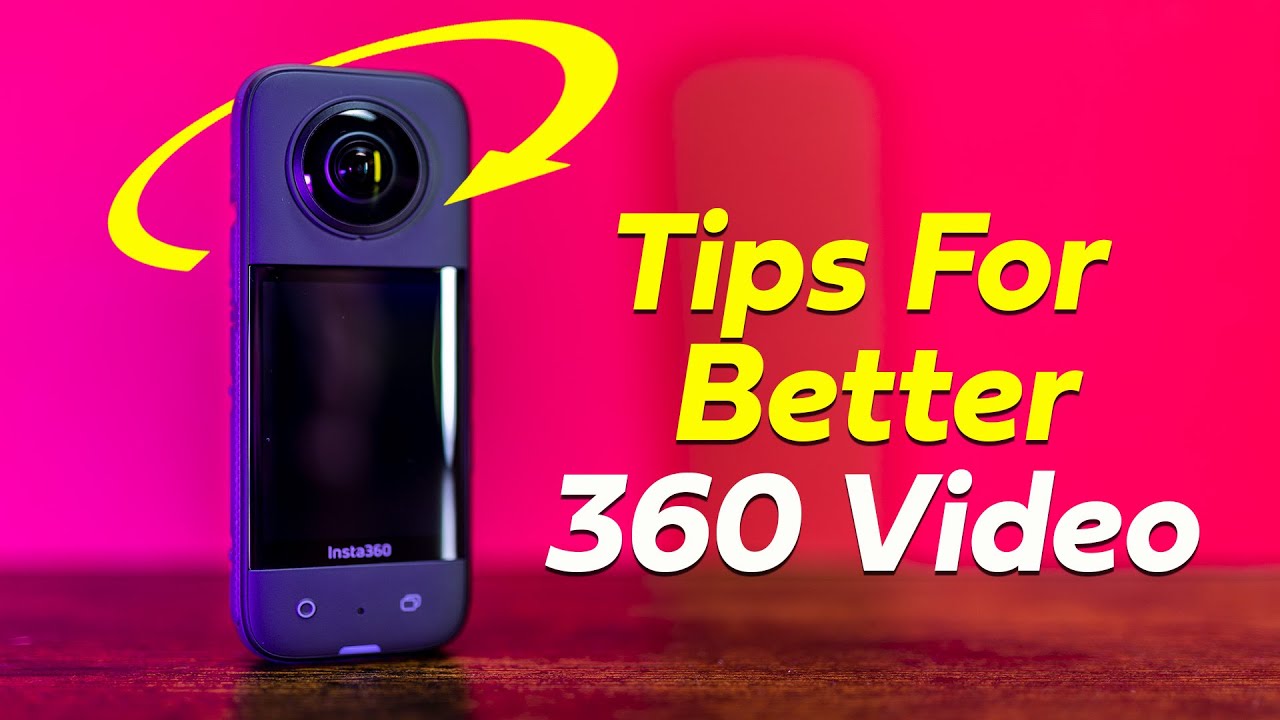If you've ever found yourself captivated by a virtual reality experience or a video that lets you look around in every direction, then you've already experienced the thrill of 360-degree videos. These groundbreaking formats offer an immersive viewing experience, allowing viewers to explore every angle of a scene, making it feel like they are right there in the moment. Whether it’s a breathtaking landscape, an exhilarating concert, or an intricate dance performance, 360-degree videos bring a new level of engagement that traditional videos simply can’t match.
But what exactly are 360-degree videos? Unlike standard videos that present a fixed viewpoint, 360-degree videos capture a complete spherical view, enabling you to navigate through the visual space. This interactivity is primarily facilitated through VR headsets or even just your smartphone, where you can tilt, swipe, and spin to explore different perspectives. With the rise of platforms like YouTube supporting these immersive experiences, it’s a fantastic time to dive into creating and sharing your own 360-degree content. Let’s take a closer look at how you can prepare and upload your mesmerizing 360-degree videos on YouTube and ensure that your audience doesn’t miss a single angle of your production!
Preparing Your 360-Degree Video for Upload

Getting ready to upload your 360-degree video on YouTube? You’re in for an exciting adventure! But before you hit that upload button, let’s make sure everything is perfectly set up to create the best viewing experience for your audience.
Here’s a step-by-step checklist to ensure your video is ready for its big moment:
- Editing Your Video: Before uploading, you might want to edit your video to enhance the overall quality. Use video editing software that supports 360-degree videos such as Adobe Premiere, Final Cut Pro, or specialized 360 video editors.
- Resolution and Format: YouTube recommends a minimum resolution of 3840 x 1920 (4K) for best visual quality. Make sure your final video file meets this requirement. Common formats like MP4 or MOV will work well.
- 360 Metadata: This is crucial! You need to include metadata in your video file to inform YouTube that it’s a 360-degree video. You can use a tool like the Spatial Media Metadata Injector to easily add this information.
- Double-Check the 360 View: Before uploading, preview your video to ensure it navigates correctly in all directions. Check for any stitching issues or glitches that could distract your audience.
- Choose a Catchy Title and Description: Make your video stand out with an engaging title! Also, write a description that explains what viewers can explore in the 360-degree video.
Once all these steps are in place, you'll be ready to share your dynamic content with the world! Uploading a 360-degree video may take a little extra effort, but with the right preparation, it’s absolutely worth it. Your viewers will thank you for the immersive experience!
Also Read This: how to put a border around an image in word
3. Step-by-Step Process to Upload 360-Degree Videos on YouTube

Uploading 360-degree videos to YouTube is a great way to showcase immersive content. If you’re wondering how to share your 360-degree masterpiece, don’t fret! Here’s a straightforward, step-by-step guide to get you up and running:
- Log into Your YouTube Account: Open YouTube and sign in. If you don’t have an account, you’ll need to create one first.
- Click on the Upload Button: Look for the iconic camera icon with a "+" sign, usually located at the top right corner of the screen. Click it and select "Upload video."
- Select Your Video: Choose the 360-degree video file from your computer. YouTube supports various formats, so ensure your video is properly saved.
- Enable 360-Degree Support: It’s crucial to explicitly inform YouTube that your video is 360-degree. To do this, you might need to append specific metadata to your video file. Use YouTube’s 360 Video Metadata App available on their website.
- Fill in Video Details: As your video uploads, fill in details like the title, description, and tags. Make sure to include keywords related to your content to enhance discoverability.
- Choose Thumbnail and Playlist: Select an eye-catching thumbnail—this helps attract viewers! You can also add the video to a playlist if it fits a specific theme.
- Set Video Visibility: Decide if you want the video to be public, unlisted, or private. Public visibility is best for maximum reach!
- Click Publish: Once everything looks good, click on the 'Publish' button. Congratulations, your 360-degree video is now live!
Also Read This: Simple Methods for Converting YouTube Videos to MP4 Format
4. Optimizing Video Settings for Better Viewing Experience

After successfully uploading your 360-degree video on YouTube, it’s essential to ensure viewers have the best possible experience consuming your content. Here’s how you can optimize video settings:
- Resolution: Aim for higher resolutions (like 4K) to ensure your video is clear and detailed. A higher resolution offers a more immersive experience, allowing viewers to explore every angle comfortably.
- Frame Rate: A frame rate of 30 fps is generally recommended. However, if your video contains fast movement, 60 fps might enhance the viewing experience.
- Bitrate: Adjust your bitrate settings to ensure smooth playback. A higher bitrate means better quality but can take longer to load. A good balance is crucial!
- Sound Quality: Don’t forget about audio! Use high-quality sound settings to provide binaural audio, which enhances the immersive experience.
- Utilize Annotations: Leverage YouTube’s annotation features to guide your viewers. You can provide links, additional information, or prompt them towards related content.
- Test Across Devices: Ensure to test your video on various devices—mobiles, tablets, and VR headsets—to see how they render. This helps you catch any issues before your audience does.
By taking these steps, you’re not just uploading a video; you’re crafting an engaging experience for your viewers. Let your 360-degree content shine!
Also Read This: Adobe Stock Image Free Download Without Watermark: Best Practices
5. Understanding YouTube's 360-Degree Video Features
Alright, so you've created a stunning 360-degree video, but how do you maximize its potential on YouTube? Understanding YouTube's features tailored for 360-degree content is essential for showcasing your work effectively. Let’s break this down!
Interactive Viewing: One of the coolest features of 360-degree videos is the ability for viewers to explore the environment. By dragging the video with their mouse or swiping on a mobile device, they can control exactly what they want to see. This interactivity immerses your audience in a way that standard videos simply can't.
Supported Formats: To make sure your 360-degree video is recognized by YouTube, you need to use the right format. Common formats include:
- equirectangular projection
- Monoscopic and stereoscopic setups
For the best quality, aim for a resolution of at least 3840x1920 pixels.
Dedicated 360-Degree Video Player: When viewers click on your video, they will immediately notice the unique viewing interface that YouTube provides for 360-degree content. This includes a small compass button to help navigate and a minimalistic display that keeps the attention on your visuals.
Thumbnails: Choose an eye-catching thumbnail! Your thumbnail is the first impression for potential viewers, so select an image that represents the experience you’re presenting. A compelling thumbnail can lead to higher click-through rates.
Also Read This: Beautiful Houses by the Ocean Across the USA Captured in Photos
6. Promoting Your 360-Degree Video Effectively
Great, you've uploaded your stunning 360-degree video, but now comes the exciting part: promoting it! Let’s chat about some killer strategies to get your video the attention it deserves.
Engage on Social Media: Share your video across all your social media platforms! Create buzz around it and encourage your followers to experience the 360-degree adventure you’ve created.
- Facebook: Consider sharing it in groups that focus on video production or 360-degree content.
- Twitter: Use hashtags like #360video or #VirtualReality to reach interested audiences.
- Instagram Stories: Utilize short clips and include a swipe-up link to boost views.
Collaborate with Influencers: Collaborating with social media influencers can significantly increase your reach. Find creators who resonate with your content style and propose a mutually beneficial partnership, perhaps by having them feature your 360-degree video to their audience.
Engaging Video Description: Don’t forget to write a captivating description that includes relevant keywords for SEO. Share context about your video, the locations depicted, and what viewers can expect. Always encourage feedback, questions, or interactions.
| Promotion Strategy | Tip |
|---|---|
| Social Media Sharing | Use engaging graphics and teasers to entice viewers. |
| Collaborations | Choose influencers aligned with your content theme. |
| Video Description | Incorporate keywords and call-to-action phrases. |
By utilizing these promotional strategies, you'll ensure your 360-degree video garners the audience it deserves—ready to explore every angle? Let’s get promoting!
Also Read This: How to Become Well-Known on Foap: Everything You Need to Know
Troubleshooting Common Issues with 360-Degree Videos
Uploading 360-degree videos to YouTube can be a thrilling experience, but sometimes things don't go as planned. Here are some common issues you might encounter and how to tackle them effectively:
- Video Doesn't Display in 360: This is perhaps the most common problem. Make sure your video is encoded with the proper metadata. You can use the YouTube 360 Metadata Tool to ensure that your videos have the correct settings.
- Low Video Quality: If your video appears pixelated, check your export settings. YouTube recommends uploading in 4K (3840 x 2160) resolution for the best experience.
- Audio Issues: If the audio doesn't sync with the video or is too low, double-check your editing software settings. Ensure your audio tracks are properly mixed and rendered before uploading.
- Playback Problems: If viewers report that the video doesn’t play correctly, verify the format and codec used for exporting. YouTube supports various formats, including MP4 and MOV.
- Black Screens: If viewers are seeing a black screen, it may be a problem with the player or internet connection. Encourage viewers to try refreshing the page or clearing their browser cache.
If you run into any other issues, don't hesitate to reach out to YouTube support forums or community groups. Often, other creators have faced similar challenges and can offer valuable insights.
Conclusion and Final Tips for Success
So, you've made it to the end of our guide on uploading 360-degree videos on YouTube! Before you hit that upload button, let's summarize some key takeaways to ensure your 360-degree video achieves the impact you intend.
- Plan Your Content: Always start with a solid plan. Decide what moments you want to capture and how to engage your audience using 360-degree perspectives.
- Prioritize Quality: Don't skimp on quality. Invest time in editing your video for the best results, from resolution to sound quality.
- Optimize for SEO: Use relevant keywords in your title, description, and tags to help viewers find your video. Effective optimization can dramatically increase views.
- Encourage Engagement: Prompt your viewers to interact. Ask questions in your video or include call-to-actions for comments and likes.
- A/B Testing: Don’t be afraid to experiment with different types of content and formats. Analyze viewer feedback and analytics to improve future videos.
Remember, the world of 360-degree video is a thrilling frontier. Embrace the learning curve, keep experimenting, and before you know it, you'll be creating captivating content that brings your audience right into the action!
 admin
admin








